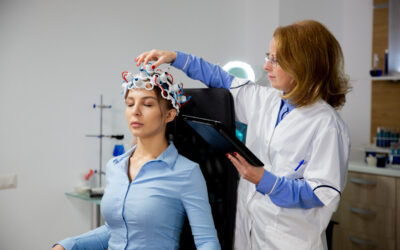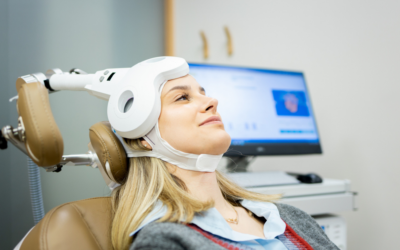Bipolar Disorder Treatment | Denver & Golden
Your Journey Towards a Better Day
Bipolar disorder is a mental health condition characterized by significant fluctuations in mood, ranging from extreme highs to profound lows. For many individuals with bipolar disorder, the underlying cause of these episodes of elevated mood and increased activity or depressive symptoms remains unclear. Our multidisciplinary team, consisting of psychiatrists, therapists, and clinicians provide compassionate and evidence-based mental health care for both adult and youth patients suffering from bipolar disorder.
A Better Day Psychiatry offers a team of qualified professionals who specialize in evidence-based bipolar disorder treatment in Denver, Golden, Lakewood, and throughout Colorado. Schedule with a provider today for bipolar disorder treatment options. Begin your journey towards A Better Day.
Bipolar Disorder Evaluation & Diagnosis
The Process at A Better Day Psych
The process of diagnosing bipolar disorders begins with a psychiatric evaluation. The bipolar disorders evaluation can be done entirely virtually via a telehealth appointment.
During the intake, your provider will review your presenting symptoms and screen for other mental health disorders. They will review your past psychiatric, medical, family, social, substance, and developmental histories to form a complete picture. If there is important information to get from family members or if there are past evaluations, those will be reviewed. With all of this information, your provider will be able to form a more accurate diagnosis. For Bipolar Disorder, some of the specific things your provider will be looking at are:
Do you have discreet periods (anywhere from a few days to a few weeks) of:
- Decreased need for sleep
- Increased energy
- Increased productivity
- Elevated mood (very happy or irritable)
- Rapid speech or thoughts
- Risk taking such as increased spending
After the Bipolar Disorder evaluation and diagnosis, your provider will collaborate with you to create a personalized treatment strategy centered around your goals for healing.
Bipolar Treatment Options
At A Better Day Psychiatry, we prioritize collaborating closely with both patients and their families to develop personalized treatment plans. We view our connection with you as a partnership.
The first step in bipolar disorder treatment involves education about the treatment options and what may be the best fit. Treatment options may include:
Bipolar Therapy
Psychotherapy aims to identify and challenge negative thought patterns and beliefs associated with mood episodes. It also helps individuals develop skills to minimize the likelihood of manic/hypomanic and depressive episodes while fostering a productive and meaningful life.
Medication for Bipolar Disorder
Medication is an option for bipolar disorder. Mood stabilizers are commonly prescribed to help regulate mood swings and prevent both manic and depressive episodes. Atypical antipsychotic medications may also be used to manage acute symptoms of mania or depression. At A Better Day Psychiatry, our approach is to begin with the lowest effective dose for the patient when starting a medication and the decision to start medication is always yours. Should you begin medication, you’ll continue to receive care through our psychiatric medication management program .
Bipolar Support Services
Bipolar support groups offer individuals emotional support, educational resources, and practical assistance for managing their condition.
A Better Day Psychiatry can provide bipolar disorder treatment in Denver and surrounding areas with qualified and caring providers.
About Bipolar Disorder
Facts and Symptoms in Adults and Children
Bipolar disorder, formerly known as manic-depressive disorder, affects approximately 2.8% of adults in the United States. This disorder typically manifests in early adulthood, with the median age of onset around 25 years old. Bipolar disorder significantly disrupts daily functioning, with mood swings ranging from manic or hypomanic episodes characterized by heightened energy and impulsivity to depressive episodes marked by low mood and loss of interest in activities. While fluctuations in mood are a natural part of life, the pronounced mood swings associated with bipolar disorder are so substantial that they hinder a person’s ability to function effectively for extended periods. There are two main types of bipolar disorder: Bipolar I and Bipolar II.
Types of Bipolar Disorder
Lifestyle Modifications
Bipolar I is defined by the presence of at least one manic episode, which may be preceded or followed by hypomanic or depressive episodes. Symptoms of a manic episode may include:
- Abnormally elevated or irritable mood.
- Increased energy or activity.
- Decreased need for sleep.
- Racing thoughts.
- Impulsivity.
These manic episodes typically last for at least one week and may require hospitalization due to the severity. Depressive episodes in Bipolar I disorder are similar to those seen in major depressive disorder (LINK PAGE). Symptoms may include feelings of sadness, hopelessness, and loss of interest or pleasure in activities.
Bipolar II Disorder
Bipolar II disorder involves recurrent episodes of hypomania and depression, but not full-blown manic episodes. Hypomanic episodes are milder than manic episodes, with symptoms that are less severe and do not cause significant impairment in functioning or require hospitalization. The depressive episodes in Bipolar II disorder are similar to those of major depressive disorder (LINK PAGE).
Bipolar II Disorder
Bipolar II disorder involves recurrent episodes of hypomania and depression, but not full-blown manic episodes. Hypomanic episodes are milder than manic episodes, with symptoms that are less severe and do not cause significant impairment in functioning or require hospitalization. The depressive episodes in Bipolar II disorder are similar to those of major depressive disorder (LINK PAGE).
Cyclothymic Disorder
Cyclothymia involves chronic fluctuations in mood that alternate between periods of hypomanic symptoms and depressive symptoms. These mood swings are less severe than those seen in Bipolar I and Bipolar II disorders but persist for at least two years in adults (one year in adolescents) without periods of normal mood lasting longer than two months.
Seeking timely treatment and support from mental health professionals is crucial for treating bipolar disorder. A Better Day Psychiatry providers are skilled and experienced in helping patients find the right treatment plan for bipolar disorder.
What Causes Bipolar Disorder
Bipolar disorders are complex and the causes are often multifaceted. The exact cause of bipolar disorder is not fully understood, but it is believed to result from a combination of genetic, biological, environmental, and psychological factors.
Genetic Factors
Bipolar disorder tends to run in families, suggesting a genetic predisposition.
Neurobiological Factors
Imbalances in neurotransmitters, such as serotonin, dopamine, and norepinephrine, may play a role in the development of bipolar disorder.
Environmental Factors
Stressful life events, trauma, and significant life changes may trigger or exacerbate episodes of mania, hypomania, or depression. Substance abuse can also precipitate or worsen mood symptoms.
Psychological Factors
Personality traits such as impulsivity, high sensitivity to stress, and perfectionism may contribute to the development or exacerbation of bipolar disorder symptoms.
A Better Day Psychiatry provides anxiety therapist in denver with qualified and caring providers.
Impacts of Untreated Bipolar Disorder
Untreated Bipolar Disorder can have profound and wide-ranging impacts on an individual’s life. It can impair daily functioning, strain relationships, lead to financial instability due to impulsive behaviors, and increase the risk of substance abuse and physical health problems. Additionally, untreated bipolar disorder carries a high risk of suicidal behavior. Prompt diagnosis and effective treatment are essential to minimize these risks and support individuals in achieving stability and wellness.
It’s essential to seek timely treatment and support from mental health professionals to manage bipolar disorder. Our team at A Better Day Psychiatry is experienced in bipolar disorder treatment in Denver, Lakewood, Golden, and surrounding areas.
Begin your Journey towards a better day.
At A Better Day Psychiatry, we’re dedicated to improving your quality of life, despite challenges of bipolar disorder. Our bipolar disorder specialists will conduct thorough diagnoses and offer tailored treatment for bipolar disorder. We provide comprehensive care to effectively manage symptoms and enhance overall well-being. Schedule an appointment with one of our providers for an evaluation and explore treatment options for bipolar disorder. Start your journey towards A Better Day.
Bipolar Disorder FAQs
At A Better Day Psychiatry, we want you to be informed and empowered in understanding the process of bipolar disorder diagnosis and evaluation in adults and kids. Below are answers to frequently asked questions about bipolar disorder treatment Denver.
I'm uncertain if I have bipolar disorder. Isn’t it common to have highs and lows?
Yes, it is common to have highs and lows. We recommend meeting with one of our providers to determine if you have bipolar disorder. We will help you navigate this concern and potential diagnosis.
Read Our Blog to Learn More
Explore mental health topics, find helpful resources, and learn how we can support you on your journey to a better day
How Much Does TMS Therapy Cost?
TMS therapy is one of the newest methods of therapy that can offer significant relief for symptoms of mental health issues such as anxiety & depression without medication. While the need for medication can be a barrier for some due to side effects or lack of...
Does My Child Have ADHD? How to Tell and When to Get Tested
As a parent, you want to make sure that you are supporting your child every way you can. That’s why it’s important to consider deeper motives behind your child’s actions. If a child is constantly fidgeting, struggling to focus, or acting impulsively, many parents find...
Why Choose Accelerated TMS Therapy?
Transcranial Magnetic Stimulation, or TMS, is an effective, safe, non-pharmacological approach to treat depression, anxiety, OCD, and smoking cessation by stimulating nerve cells in your brain. There are several different ways a mental health provider can administer...



